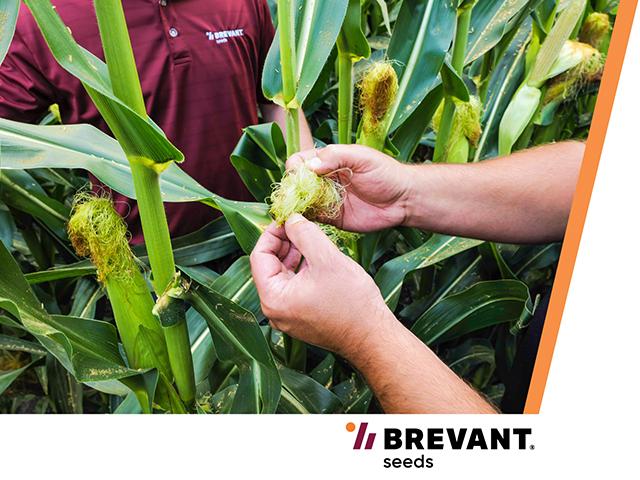Evaluating Seed and Crop Protection
The Root of Research Plots
ADVERTORIAL
Evaluating seed and crop protection technology in the field allows farmers to conduct an eye test and determine the product fit on their own acres.
The relationship between farmer and retailer is one rooted in trusted expertise, season-long service and local familiarity. Farmers have been putting their trust into ag retail for decades because retailers have proven to be a reliable source of advice for the whole acre.
Dave Lemke, account lead, Landus, stepped on to the cooperative scene in the mid-1980s. In the past 40 years, the industry has made countless changes and innovations -- one being an increased focus on research plots. These plots provide an opportunity for farmers and retailers to discuss agronomic performance and build confidence in new products. Landus owns 185 acres dedicated to various trials used as educational tools for farmers, agronomists and sellers.
"We will look very heavily at seed genetics," Lemke said. "We also look heavily at biologicals, because that's our future."
P[L1] D[0x0] M[300x250] OOP[F] ADUNIT[] T[]
RESEARCH PLOTS YIELD LOCAL INSIGHTS
With endless options of seed, fertilizer, chemicals and other crop inputs, it can be staggering to navigate what works best on an individual farm. Through research plots, farmers and retailers can identify how products thrive in their specific ecosystem, what works for the geography and how regional weather, diseases and insects impact the yield potential of crops.
Yield data is influential in the seed selection process, but Lemke reminds customers to keep in mind other external factors that affect crops, especially in years burdened by Mother Nature. Lemke recalls fall 2021 as one of those times. Landus had new corn hybrids in three local research plots that looked promising. At harvest, the crop showed evidence of Physoderma brown spot, and that prompted a deeper look at the hybrids' agronomic characteristics beyond yield. Conducting trials and sharing unbiased performance results lends credibility to new product and technology recommendations.
"Our obligation to growers is to look at products in our neighborhood and find answers for the next couple of crop years," Lemke said. "That's our job as their trusted adviser."
WHY NOT RETAIL?
While tech sheets and research data tell part of the story, being able to look at seed and crop protection products in the field allows farmers to conduct their own eye test. Through in-field plots, ag retail delivers a personal touch to their customers' acres, which is one of many reasons why Brevant(R) seeds chooses to work exclusively with ag retail.
"Brevant seeds listened to what we were asking for in past years, and anticipates our needs for the future," Lemke said. "The representatives with Brevant seeds knew what we were looking for in specific types of corn products. That's why our relationship is where it is today, because of the believability and consistency."
For Landus, product scoring occurs every week or two throughout the season. Retail agronomists evaluate emergence, early vigor and how each plant performs from planting through harvest.
"Who better knows their soil, herbicide program, fertility and genetics?" Lemke said. "Seed is the one thing farmers will talk about 365 days a year. It's all about recommending the products that are determined to be good in soil locally. That's our whole job."
To find a local research plot and gain insights for next season, contact your ag retailer. Find yours at https://brevant.com/…
TM (R) Trademarks of Corteva Agriscience and its affiliated companies. (C) 2022 Corteva
[PF_0822]
(c) Copyright 2022 DTN, LLC. All rights reserved.




